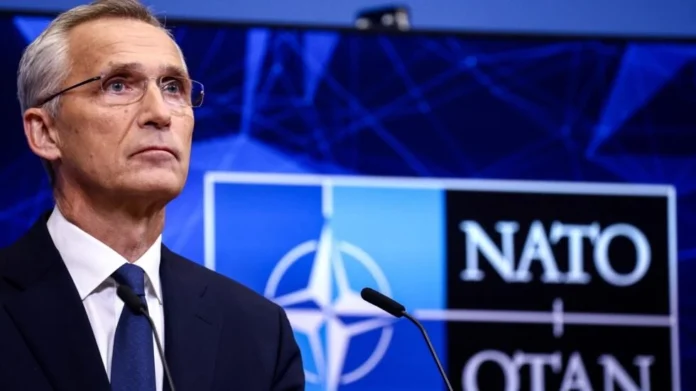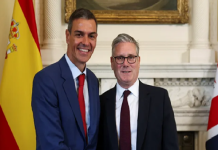TOKYO (AFP) — NATO Secretary-General Jens Stoltenberg sharply criticized China on Tuesday for “bullying its neighbors and threatening Taiwan” and stressed the need for Japan and other democracies to work together with the alliance to defend the international order.
Calling it a “critical moment for NATO and for Japan,” Stoltenberg, who is visiting Tokyo, said China and Russia are “leading an authoritarian pushback against international rules-based order.”
He said trans-Atlantic and Indo-Pacific security are “deeply interconnected,” and a victory by Russian President Vladimir Putin in Ukraine would send a message that authoritarian regimes can achieve their goals through brute force. “This is dangerous,” he said.
“China is watching closely and learning lessons that may influence its future decisions,” Stoltenberg said at a joint news conference with Japanese Prime Minister Fumio Kishida.
Stoltenberg’s direct criticism of China contrasted with Kishida’s more indirect expression of opposition to any one-sided changes by force to the status quo in the East and South China Seas. Already a close ally of the United States, Japan has expanded military ties with the United Kingdom, Europe, NATO, as well as other Indo-Pacific countries in recent years amid growing security threats from China and North Korea.
It quickly joined US-led economic sanctions against Russia’s war in Ukraine, providing Ukrainians with humanitarian aid and non-combat defense equipment. This is largely due to Japan’s concerns that Russia’s aggression in Europe could be mirrored in Asia, and growing concern over China’s rising claims and rising tensions over its claims to Taiwan. .
At a press conference, Foreign Minister Kishida welcomed NATO’s growing interest and engagement in the Indo-Pacific region and said Japan would open a delegation office in NATO to facilitate closer communication between Japan and the promotion of the alliance.
Kishida said he and Stoltenberg had agreed to advance their relationship in areas such as cyberspace, outer space, disinformation, and critical and emerging technologies. In a joint statement issued later, the two leaders expressed concern about expanding military cooperation with Russia and China, including joint exercises off the coast of Japan. The two leaders called on China to engage “constructively” in international efforts on arms control, disarmament and non-proliferation, and stressed the importance of “peace and stability across the Taiwan Strait”.
The Japanese government announced its new National Security Strategy in December, pledging its resolve to strengthen its military and use long-range missiles to forestall enemy attacks. Japan also plans to nearly double its defense spending in five years and hopes to further ease restrictions on arms exports to boost the defense industry.






